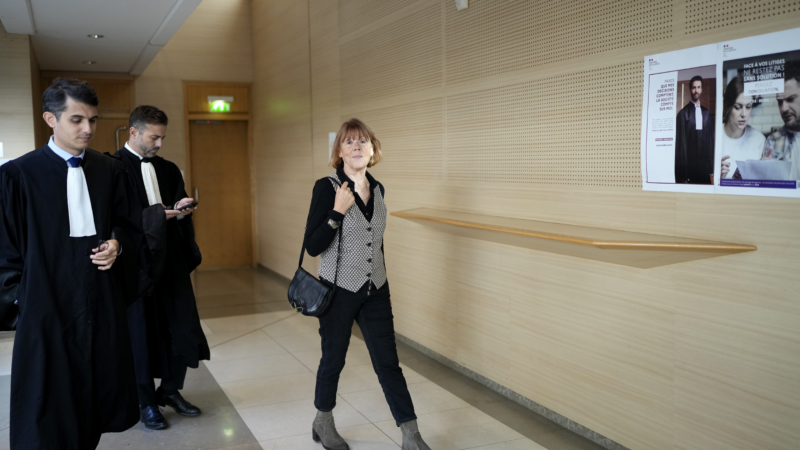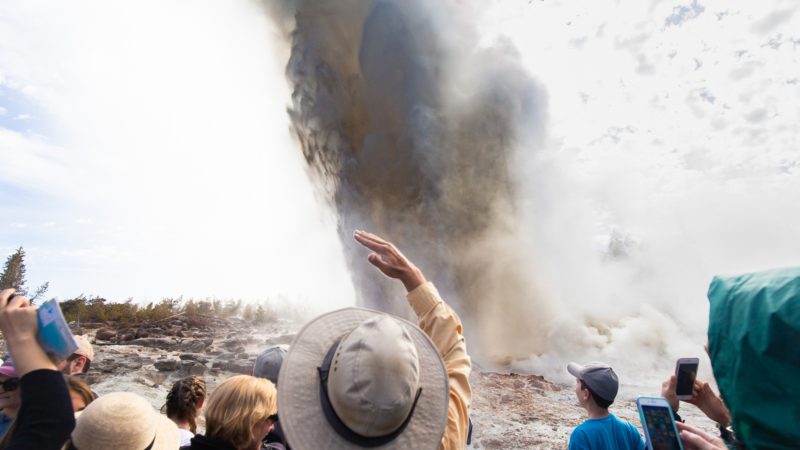Alabama COVID-19 Hospitalizations Hit Record High
Alabama’s coronavirus numbers have hit a new high.
The Alabama Department of Public Health reports 647 people were hospitalized for COVID-19 Wednesday, the most since the pandemic began. There were also 849 new cases, the highest in a single day. That spike concerns University of Alabama at Birmingham healthcare epidemiologist Dr. Rachael Lee. She spoke with WBHM’s Andrew Yeager.
This interview has been condensed and edited for clarity.
What’s behind the increase in coronavirus cases and hospitalizations:
If you look at the timing, it looks like this may be related to Memorial Day. So by Memorial Day we were all completely opened up and we had a lot of fatigue in terms of being under quarantine. And so once the state opened up and loosened a lot the restrictions, we got together, had vacations, restaurants have opened up, bars have opened up. Because of that close connection with other people, being within six feet and potentially not wearing masks … that may be driving our numbers and our cases.
Hospital capacity limited:
As a state we still do have some capacity. But if you think about where the issues are, so for instance, in Montgomery with their capacity, it’s very difficult to take care of those large number of patients. One of the things that we would be concerned about would be your ventilators … At UAB we have capacity to take care of more patients with COVID-19, but that also requires coordination. We’d need to transfer patients from other areas to be able to care for them. At the current rate that we’re seeing an increase in number of cases, we will not have enough ventilators to care for the people that need ventilators. We will not have enough hospitalized beds, and that can lead to an increase in mortality.
Why the hospitalization rate is a reliable indicator:
The hospitalization rate allows us to realize that it’s more than just an increase in our testing capacity. So as we’ve seen an increase in the number of cases, I’ve heard pretty consistently, ‘Well, we’re also doing more tests and maybe that’s why we’re identifying more people.’ But if you are identifying more people, then potentially the hospitalization numbers shouldn’t really go up. But as we’ve seen the hospitalizations are consistently going up and that’s where we’re concerned that we can’t take care of these patients in the way that we would want to.
Mass trial shines a light on rape culture in France
A harrowing and unprecedented trial in France is exposing how pornography, chatrooms and men’s disdain for or hazy understanding of consent is fueling rape culture.
What’s your favorite thing about fall?
With cooler mornings and shorter days, if feels like fall is finally here. So what’s your favorite thing about fall? We put that question to people at our recent News and Brews community pop-up in Cullman.
Teammates LeBron and Bronny James make history as the NBA’s first father-son duo
The Jameses, who both play for the L.A. Lakers, shared the court for several minutes on the NBA's opening night. They join a very small club of father-son teammates in American professional sports.
After John le Carré’s death, his son had the ‘daunting’ task to revive George Smiley
Nick Harkaway grew up hearing his dad read drafts of his George Smiley novels. He picks up le Carré's beloved spymaster character in the new novel, Karla's Choice.
When Steamboat goes WHOOSH, scientists look for answers
What triggers geysers to go off is still not well understood. A new paper shows that one small earthquake likely triggered an eruption of the world's tallest active geyser, Steamboat.
Trump’s ex-chief of staff warns his former boss would rule like a ‘fascist’
John Kelly is one of several Trump-era White House officials to publicly criticize their former boss, arguing that Trump is not fit to hold office again.






